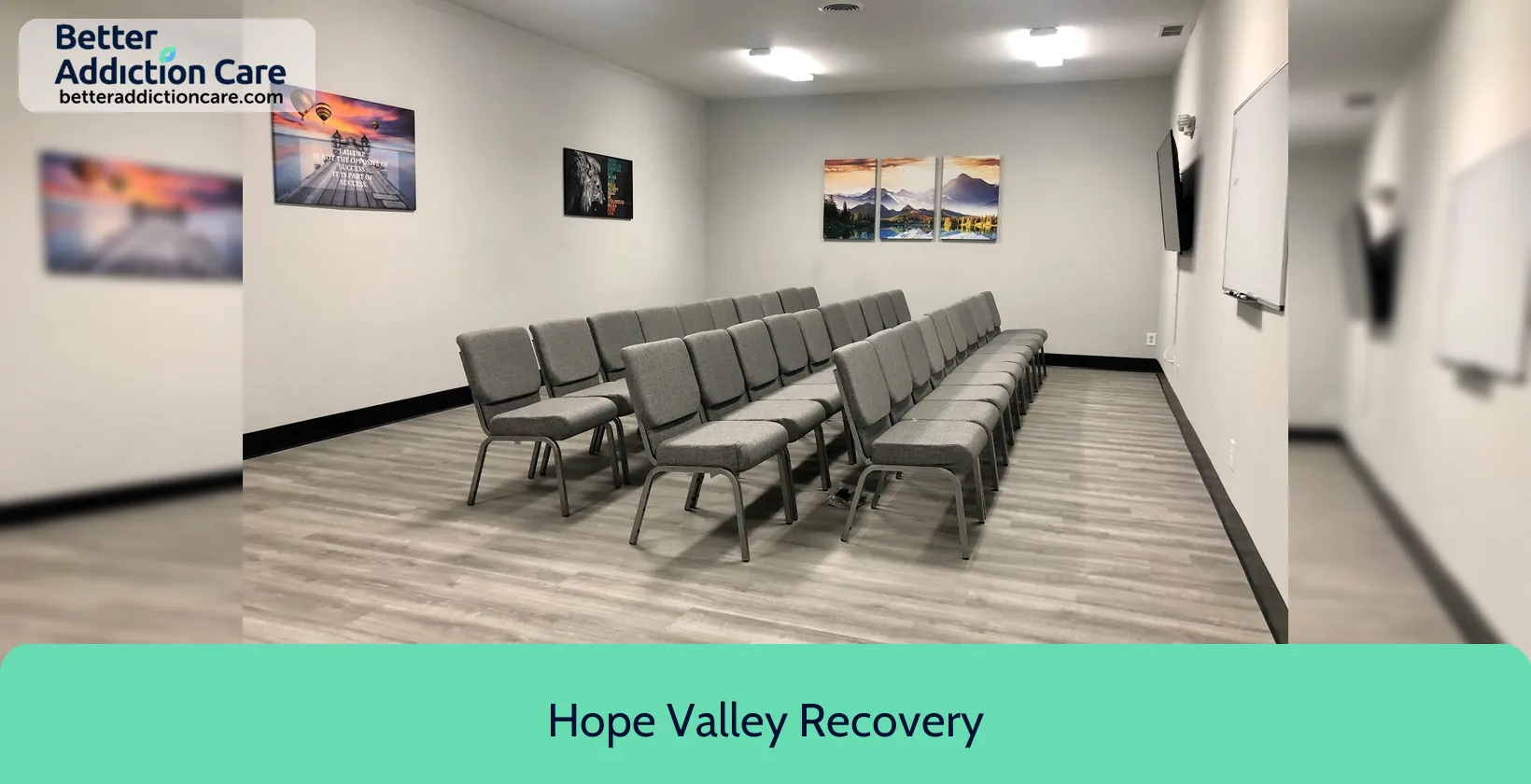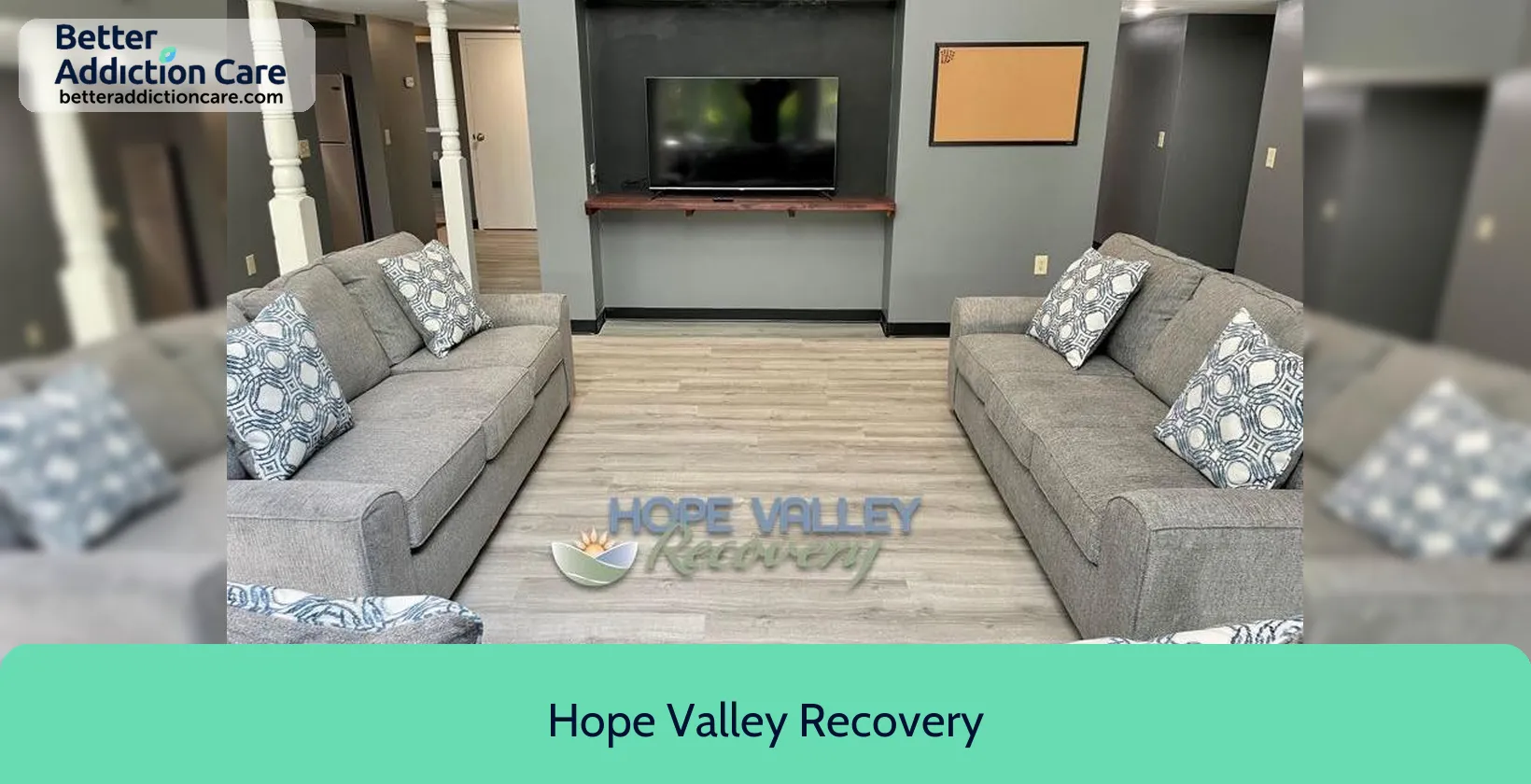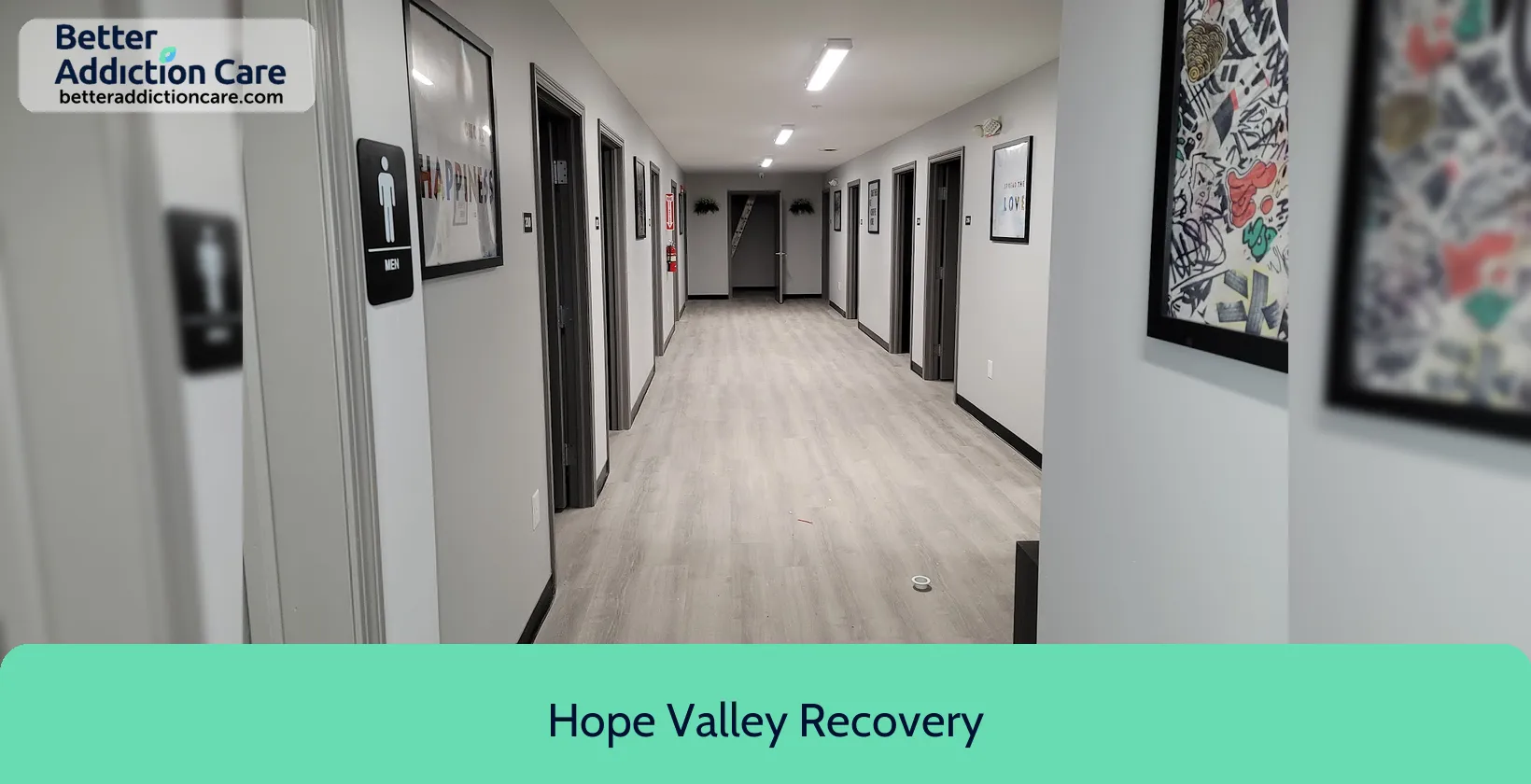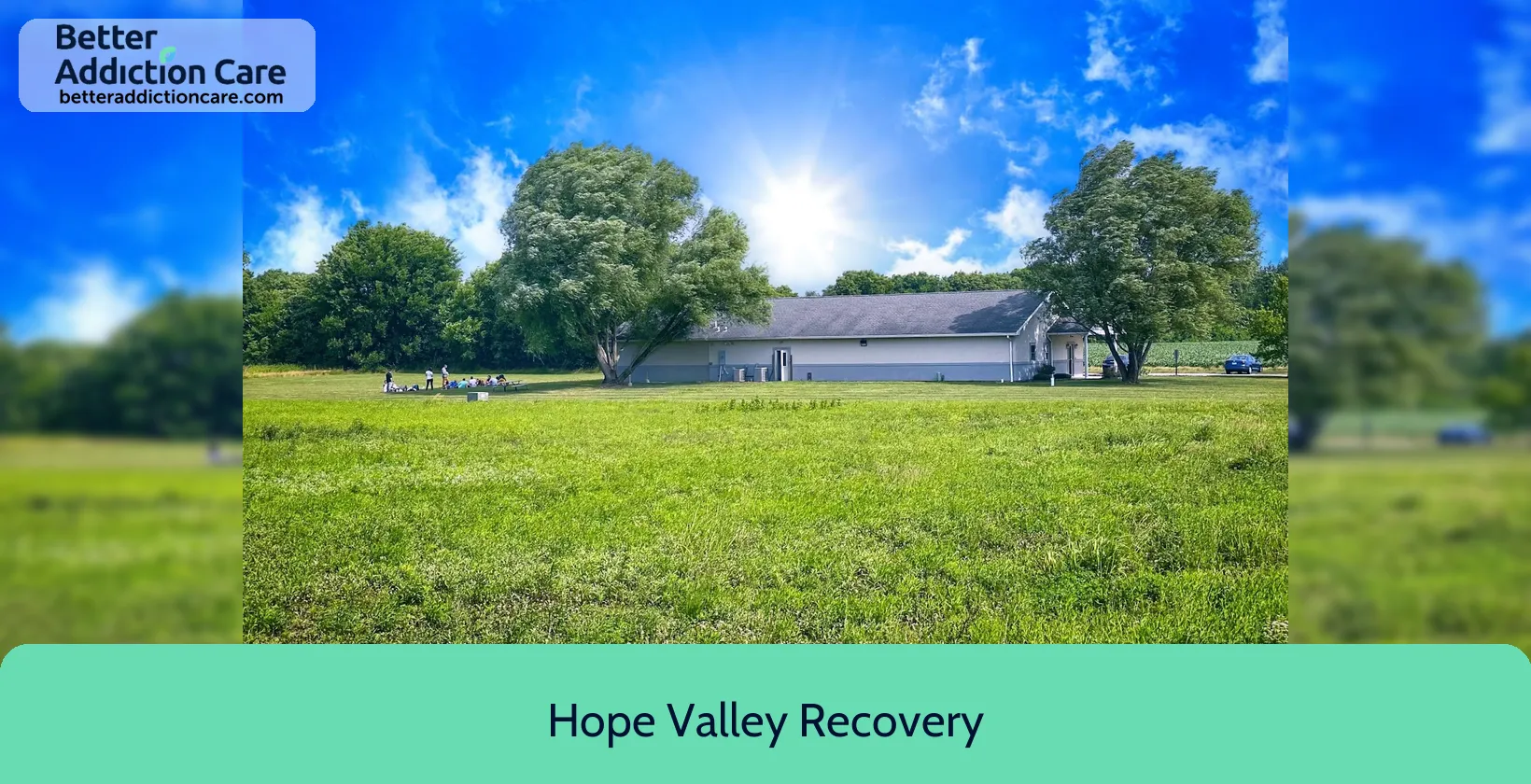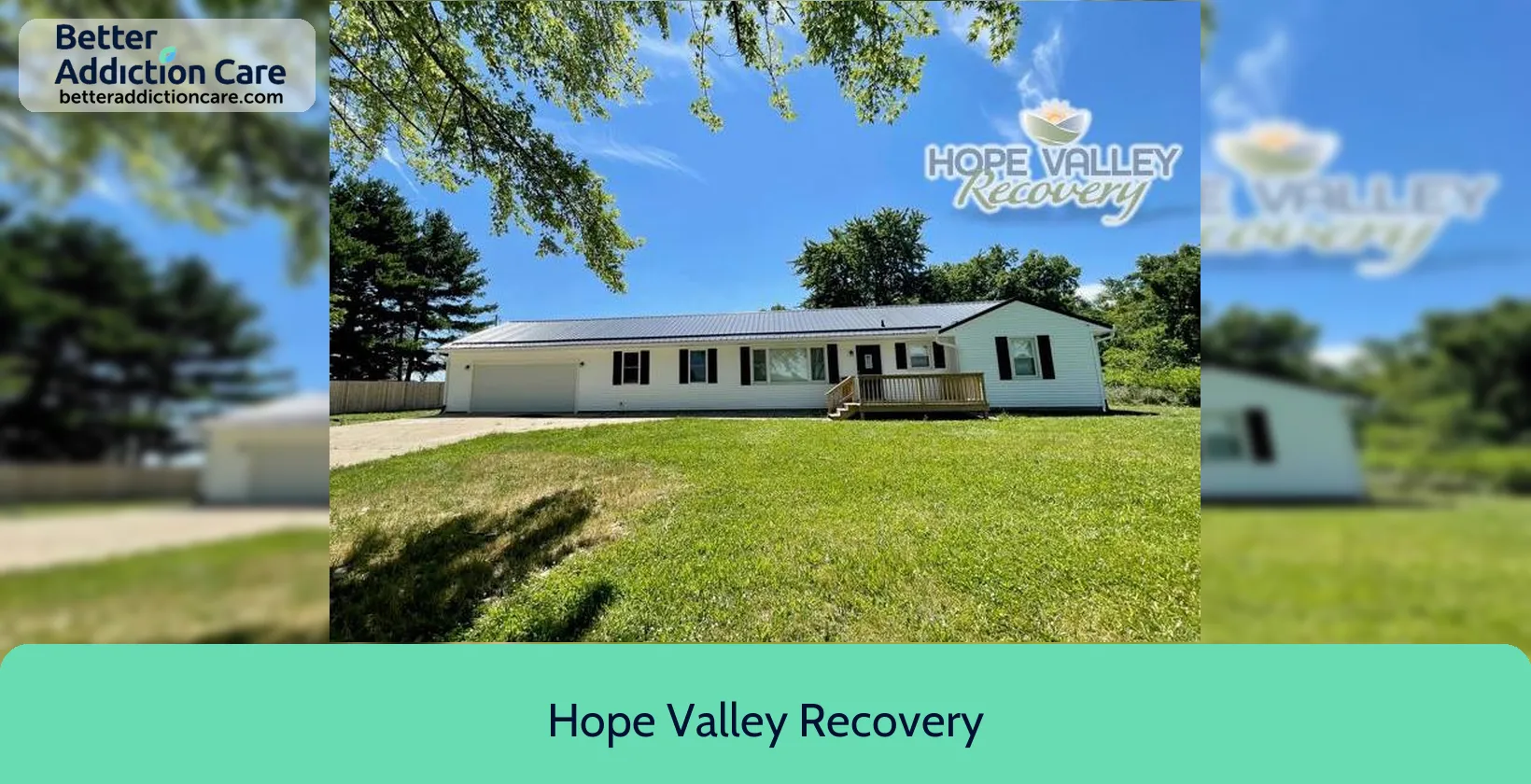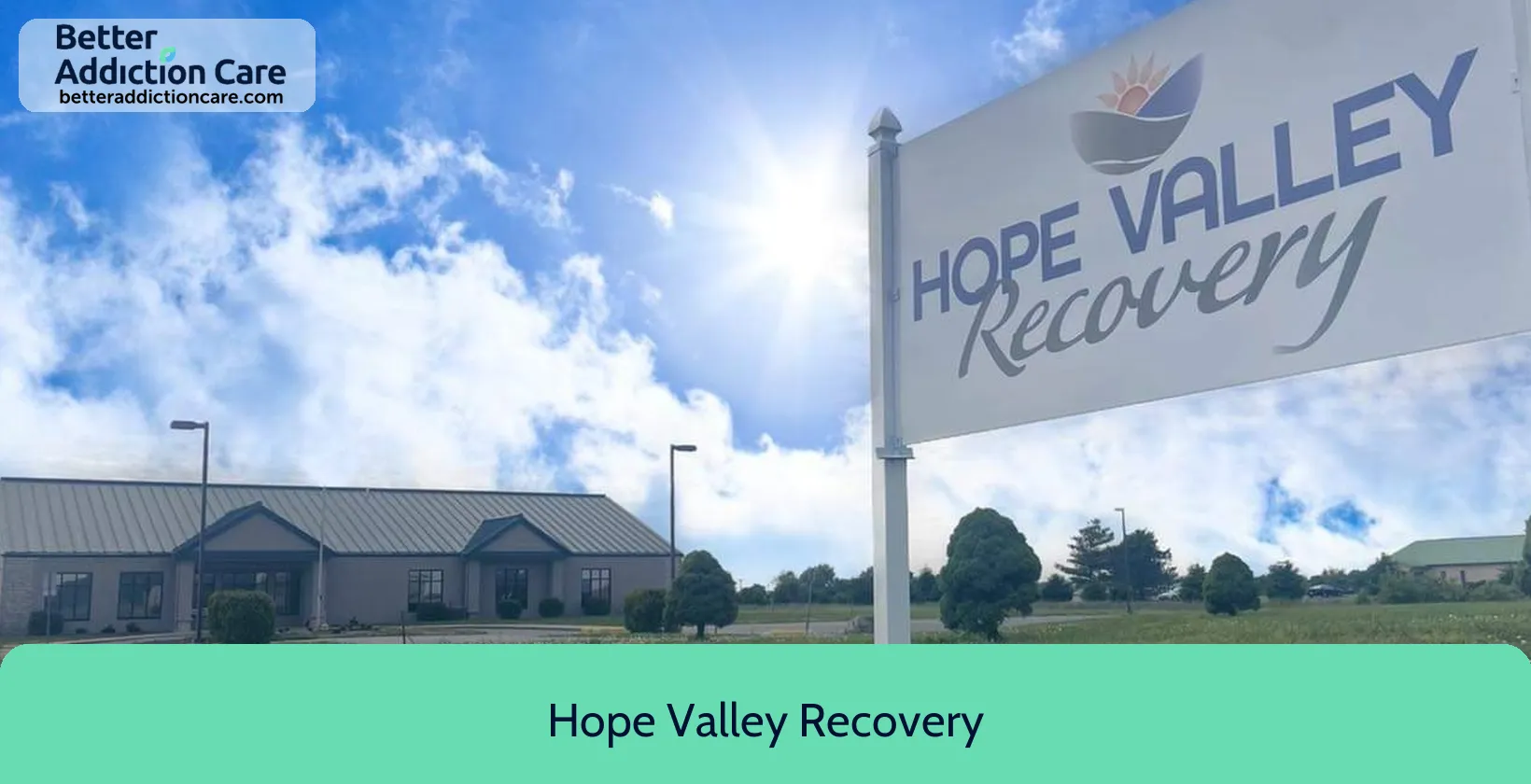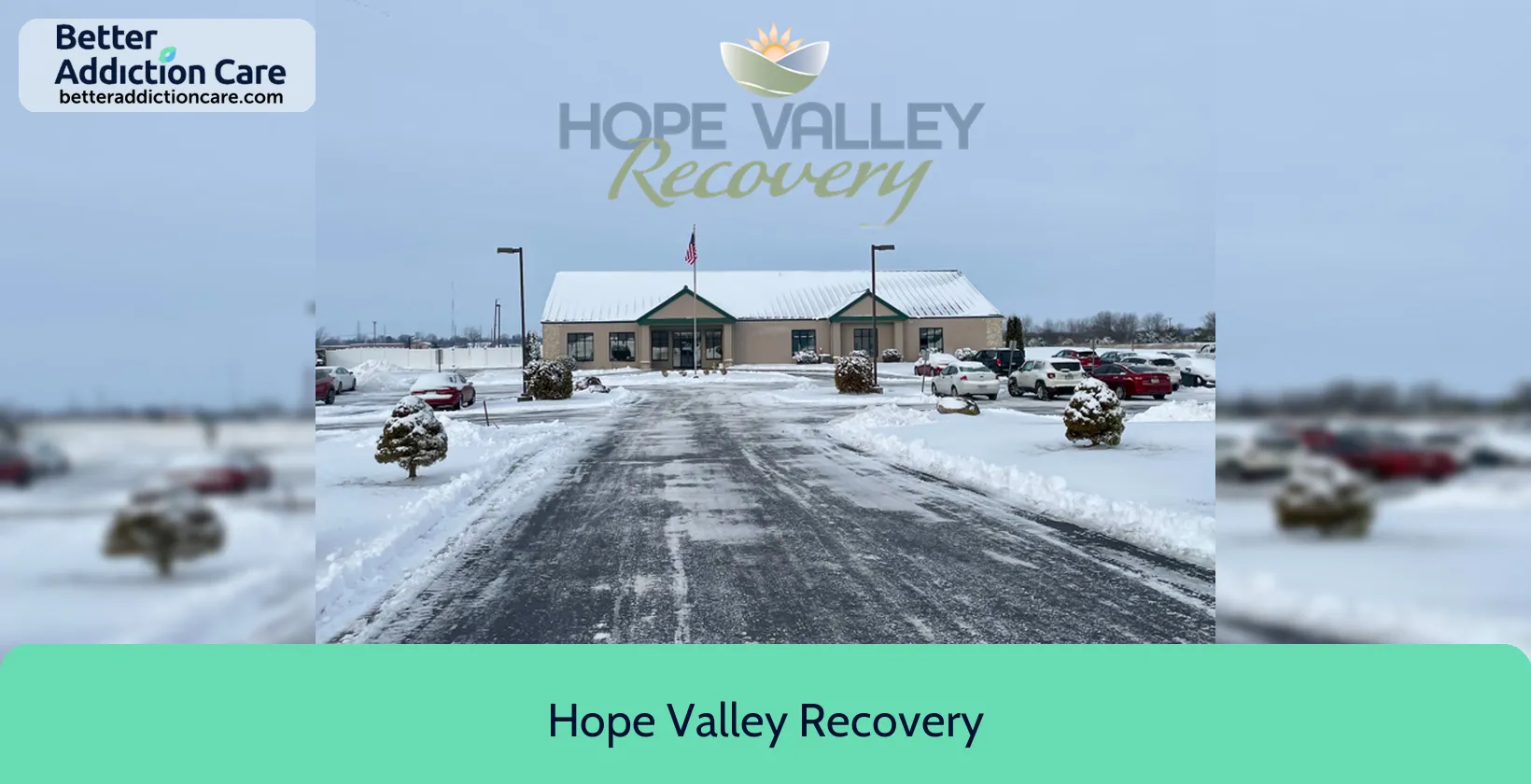Hope Valley Recovery
Overview
Hope Valley Recovery, located in Circleville, Ohio, is a comprehensive alcohol and drug rehabilitation center offering a range of services, including medical detox, medication-assisted treatment, inpatient care, outpatient programs, residential recovery, and aftercare for adults. The center addresses substance abuse and assists clients in resolving other life challenges, such as employment.
The recovery process at Hope Valley Recovery begins with a supervised detox program, which typically lasts 7 to 10 days. During this period, clients may receive medications, such as FDA-approved Suboxone, to manage withdrawal symptoms.
Additionally, clients participate in educational classes to understand the effects of detox, develop coping skills, and learn about the role of medication in recovery. The detox program also includes enrollment in 12-step programs and activities like yoga, meditation, and exercise to support holistic well-being.
After completing detox, clients at Hope Valley Recovery move to the primary treatment phase at the facility. Here, they receive a comprehensive range of services, including individual, group, and family therapy, as well as health and nutrition education and continued medication management.
Socialization and the development of support networks are strongly encouraged to foster a sense of community and mutual support. The facility offers a comfortable atmosphere with modern amenities, ensuring clients can focus on their recovery journey with minimal distractions. The inpatient program typically lasts up to 45 days.
Following the inpatient program, clients may transition to an outpatient program based on their progress. The most intensive outpatient option is the partial hospitalization program, which provides 45 days of day treatment without overnight stays. This phase continues to address treatment needs, including life skills development and co-occurring mental and behavioral health disorders, ensuring a seamless and supportive continuum of care.
The intensive outpatient program at Hope Valley Recovery incorporates peer support programs, career coaching, and the cultivation of healthy daily routines. This program spans up to 120 days, providing a structured yet adaptable framework for recovery.
In contrast, the general outpatient program extends up to 180 days, offering individuals a longer duration of support and flexibility as they continue their journey toward recovery. Both programs emphasize comprehensive care and therapeutic interventions tailored to meet the diverse needs of clients striving for sustained wellness.
Upon completing the outpatient programs, clients transition to the transitional living phase. During this phase, clients move into off-site housing while continuing to receive monitoring and therapeutic services. Transitional living allows clients to practice the skills learned during treatment in a supportive environment.
This phase includes assistance with job placement and training, college placement, and tutoring. Clients also have opportunities to volunteer in local communities, helping them reconnect with their neighbors.
Alumni receive continued support, including assistance in finding other transitional housing upon completing the program, ensuring a sustained and successful recovery journey.
Hope Valley Recovery at a Glance
Payment Options
- Private health insurance
- Cash or self-payment
- Medicaid
- Sliding fee scale (fee is based on income and other factors)
Assessments
- Comprehensive substance use assessment
- Screening for tobacco use
- Comprehensive mental health assessment
- Interim services for clients
- Outreach to persons in the community
Age Groups
- Adults
- Seniors
- Young adults
Ancillary Services
- Case management service
- Integrated primary care services
- Mental health services
- Social skills development
- Transportation assistance
Highlights About Hope Valley Recovery
7.55/10
With an overall rating of 7.55/10, this facility has following balanced range of services. Alcohol Rehabilitation: 8.04/10, Drug Rehab and Detox: 8.46/10, Insurance and Payments: 6.00/10, Treatment Options: 7.70/10.-
Drug Rehab and Detox 8.46
-
Alcohol Rehabilitation 8.04
-
Treatment Options 7.70
-
Insurance and Payments 6.00
Accreditations
Commission on Accreditation of Rehabilitation Facilities (CARF):

CARF accreditation is a prestigious recognition for rehabilitation and human service organizations. It signifies that an organization meets high-quality standards and is committed to providing top-level care. CARF conducts rigorous evaluations to ensure compliance, enhancing an organization's credibility and reassuring clients and funders of exceptional service quality. This accreditation promotes excellence and continual improvement in the rehabilitation and human services field.
Treatment At Hope Valley Recovery
Treatment Conditions
- Substance use treatment
- Alcoholism
Care Levels
- Outpatient
- Hospital inpatient treatment
- Hospital inpatient/24-hour hospital inpatient
- Short-term residential
- Long-term residential
Treatment Modalities
- Group counseling
- Individual psychotherapy
- Trauma-related counseling
- Cognitive behavioral therapy
- Telemedicine/telehealth therapy
Ancillary Services
Languages
- Sign language services for the deaf and hard of hearing
Additional Services
- Pharmacotherapies administered during treatment
- Mentoring/peer support
- Breathalyzer or blood alcohol testing
Special Programs
- Clients who have experienced trauma
- Clients with co-occurring mental and substance use disorders
- Clients who have experienced sexual abuse
- Clients who have experienced intimate partner violence, domestic violence
Get Help Now
Common Questions About Hope Valley Recovery
Contact Information
Other Facilities in Circleville

6.68
DISCLAIMER: The facility name, logo and brand are the property and registered trademarks of Pickaway Recovery Services, and are being used for identification and informational purposes only. Use of these names, logos and brands shall not imply endorsement. BetterAddictionCare.com is not affiliated with or sponsored by Pickaway Recovery Services.
